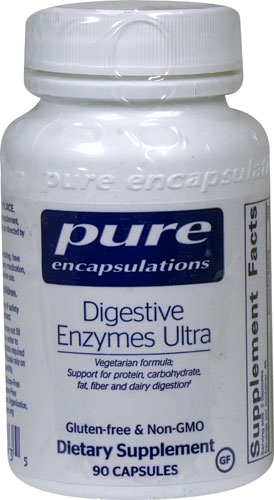From creaking joints to super-loud sneezes, the human body produces a chorus of sounds on a daily, sometimes hourly basis.
And while some may be funny—and others downright embarrassing (a case of the hiccups during a movie, anyone?)—these noises can also be indicative of something simmering under the surface of your well-being.
Here’s the lowdown on yawns, hiccups, sneezes and more--what these body sounds might be telling you about your health, and how you might find relief for them, naturally:
Yawns
Yawning might be closely associated with high school students who have spent the better part of the night scouring social media sites, or an overt—perhaps even obnoxious—sign of boredom.
And yet, getting a case of the yawns—which affects us all—has nothing to do with lethargy or ennui.
Rather, according to a study covered in The Independent, yawning “actually works in order to cool down our brains and help us think a little clearer…Like any computer the brain has an optimal working temperature and when it becomes too hot yawning helps cool it down, increasing both the heart rate and blood flow while delivering a big gulp of air to the head, cooling the blood in that area.”
Why, then, do we yawn when we’re tired, you might ask? Sleep deprivation and exhaustion are both known to increase brain temperature, The Independent writes.
Happen to sleep like a baby but still find yourself yawning? Anti-depressants, antihistamines and some pain medications might be the culprit, while symptoms of liver failure and multiple sclerosis include excessive yawning. Another reason might have to do with your ticker: The Daily Health Post affirms that unrelenting yawning “may indicate a heart or circulatory issue.”
How to deal?
An occasional case of the yawns can potentially be remedied by snacking on cooling foods such as watermelon, cucumbers or celery, which may turn down the heat in your head. Additionally, avoid hot environments, stretch your legs with a walk and fill up your favorite water bottle: Hydration almost always guarantees rejuvenation; it also helps regulate overall body temperature.
Hiccups
“Hiccups occur when your diaphragm spasms, causing an inhale that’s abruptly stopped by the glottis (part of the larynx),” Kate Rockwood at Health.com reports.
Which seems perfectly valid, but why do hiccups tend to strike right before a big date—or after Thanksgiving dinner?
“The diaphragm is partially controlled by the vagus and phrenic nerves, which can be stimulated by excitement, nervousness, certain meds or stomach distention after a big meal,” Rockwood says.
While this is normal—if not a pain in the, er, stomach—persistent hiccups may be indicative of unseen complications, including acid reflux disease, a heart attack or stroke, pneumonia or, in the rarest of cases, cancer.
Searching for a brown paper bag too often, when the rest of your health is clear? Take a look at the stress levels in your life: Chronic stress is associated with anxiety-induced hiccups, Prevention reports.
How to deal:
While hiccups aren’t harmful unless they last more than 48 hours (in which case you should call a doctor, pronto), they’re certainly exasperating—and not just the timing of them. For quick relief, stir a teaspoon of honey into warm water and swallow. “Honey could potentially tickle the vagus nerve to make the hiccups stop,” Reader’s Digest reports. Dill has a similar effect, while simply finding a way to relax—whether it’s lying down on a bed or doing a fast meditation may ease those crazy-making spasms.
Sneezes
Sneezes get the best of us—and not just when we’ve used too much black pepper.
“Sneezing may be triggered by anything from a virus to bright lights, which can stimulate a reflex response running from the brain to the diaphragm,” Fox News reports.
That said, one of the most common culprits is small particles in the air that compel our noses to clear, well, the airways.
“Much like a temperamental computer, our noses require a ‘reboot’ when overwhelmed, and this biological reboot is triggered by the pressure force of a sneeze,” ScienceDaily reports. “When a sneeze works properly, it resets the environment within nasal passages so ‘bad’ particles breathed in through the nose can be trapped.”
But what if you’re sneezing a lot?
Besides the common offenders of colds, flus, allergies and spicy foods, excessive sneezing may be a sign of rhinitis—or inflammation of your nasal cavity lining—as well as drug withdrawal. Usually, however, there’s nothing to be worried about. “It can be very bothersome,” The New York Times reports, “but is rarely a sign of a serious problem.”
How to deal:
Keep a clean, dust-free environment to reduce your sneezes: Dirty furnaces, animal dander, unwashed sheets and clogged air filters can all contribute to sneezing. That aside, consider brewing yourself a mug of nettle tea, which may alleviate congestion. In a pinch? Literally pinch under your nose to squeeze one of the nerves responsible for triggering sneezes.
Belching
It may seem offensive, but belching is an inevitable part of being human.
“A small amount of belching each day is normal. You swallow air all day, so it’s a physiologic process,” says Scott Gabbard, MD, a gastroenterologist at Cleveland Clinic in Cleveland, Ohio.
But if you’re belching more than usual, you might want to schedule an appointment with your doctor.
Why?
Belching may be your body’s way of telling you that you have Gastroesophageal reflux disease, or GERD. “When stomach acid splashes back up into the esophagus, patients start subconsciously doing air swallows to try to get those contents back down,” says Dr. Gabbard. Other causes might include a swallowing problem, bacterial overgrowth in your small intestine or a stomach ulcer.
How to deal:
First and foremost, examine your pacing at meals, as eating too quickly may up your chances of belching, in that it causes you to swallow too much air. Rethink how you chew your food. Also, upping your intake of non-alcoholic—and non-carbonated—drinks, may reduce the need to belch. Just be sure to consume your beverages straight from the glass: Drinking from a straw may cause you to swallow excess air as well.
Stomach growling
As if you weren’t aware of it already, it seems that your stomach is determined to let the whole world know you’re desperate for a turkey sandwich.
“Rumbling or gurgling that seems to come from your belly is actually the sound of air and fluid as they're moved by muscles through the digestive tract,” Health reports. Or, as associate professor of physiology and associate director of the Independent Study program at the Lake Erie College of Osteopathic Medicine Mark A. W. Andrews says, “Growling is more commonly associated with hunger because it is typically louder when the stomach and intestines are empty and so the organs' contents don't muffle the noise.”
Although perfectly normal—especially if you’ve gone hours without eating, or are digesting your lunch—there are a few occasions when that thunder in your tummy might be symptomatic of a more serious problem, such as mechanical bowel obstruction, a food allergy or blocked blood vessels (which may be preventing the intestines from getting proper blood flow).
How to deal:
Besides the obvious—eat! you also can tone down the growling by avoiding gum (which, like eating too fast, may lead you to swallow too much air), sugar-free candies and greasy, gas-inducing foods such as pizza. You might also want to curb your intake of coffee, which may increase the acidity in your stomach and result in some serious roaring.
And aim to deal with your stress smartly: “Anxiety or high levels of short-term stress can actually slow gastric emptying (the process of your stomach sending food into the intestines), stalling the digestion process and keeping your stomach rumbling,” Ana Gotter reports.
Did we mention that yoga, walking and other stress-reducing activities are great for yawning and hiccups too?




